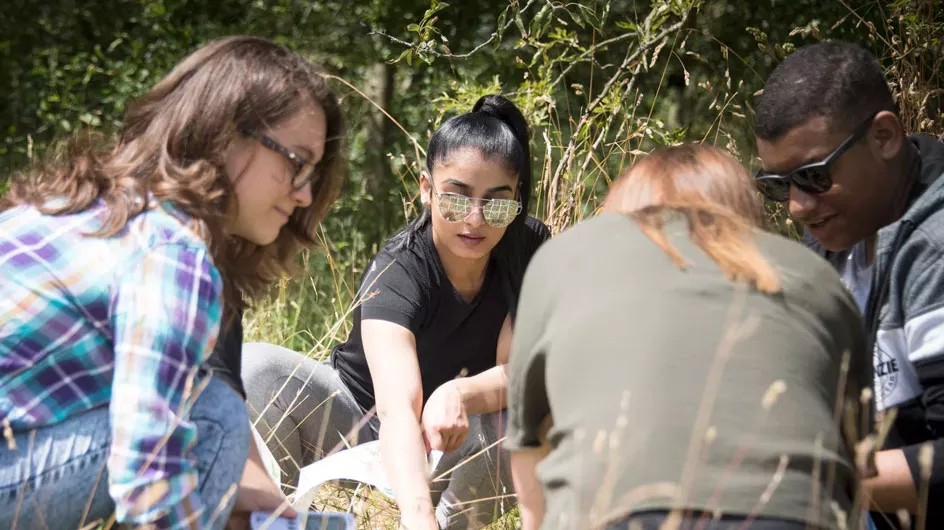KS5 Geography - rainforest: Water and carbon cycles
Discover the physical processes which control water and carbon cycles over time and delve into the role of the rainforest within them.

Level
Duration
Allocated space
Overview
Carbon and water are essential to all life. Pupils will use Kew’s iconic Palm House to discover the physical processes which control these key cycles over time and delve into the role the rainforest plays within them.
In this interactive session pupils investigate the importance of the rainforest in the water and carbon cycles and discover the impacts that human activity can have on these systems.
Using a real-life Kew project, pupils can consider techniques to assess carbon content of ecosystems and discover why this is necessary.
Please note, elements of this session will be delivered outside.
Learning outcomes
Pupils will be able to:
- Understand the key stages in the water and carbon cycles.
- Appreciate the importance of the role of the rainforest in the water and carbon cycles.
- Explain how human activity can impact or disrupt the water and carbon cycles.
- Describe how the carbon content of a forest can be assessed and understand the importance of this information.
We will ensure learning outcomes are relevant to your pupils and will focus on your chosen exam board.
Keywords
Rainforest, water cycle, carbon cycle, afforestation, deforestation, climate change, photosynthesis, respiration, decomposition, carbon sequestration, carbon sink/source
Skills
Geographical information
Understand the nature of and use different types of geographical information, including:
- Qualitative and quantitative research.
- Images, maps, diagrams and graphical representations.
- Digital data.
- Numerical and spatial data.
- Collect, analyse and interpret such information, and demonstrate the ability to understand and apply suitable analytical approaches for the different information types.
- Communicate and evaluate findings, draw well-evidenced conclusions informed by wider theory, and construct extended written argument about geographical matters.
Qualitative and quantitative skills
- Interpretation and evaluation of a range of source material including textual and visual sources.
- Understanding of what makes data geographical and the geospatial technologies (e.g. GIS) that are used to collect, analyse and present geographical data.
- Collect and use digital and geo-located data, and understand a range of approaches to use and analyse such data.
Curriculum links
AQA - Geography
3.1.1: Water and carbon cycles
- 3.1.1.1: Water and carbon cycles as natural systems
- 3.1.1.5: Case studies
Edexcel - Geography
AOS 3 Physical Systems and Sustainability
- 5: The Water Cycle and Water Insecurity 1.2 b) and c)
- 6: Carbon Cycle and Energy Security 1.2 b), 2.3 b) and 3.1 b)
OCR - Geography
-
1.2: Earth’s Life Support System 2.a)
International baccalaureate - Geography
Option A: Freshwater – issues and conflicts
- 1: The water system
